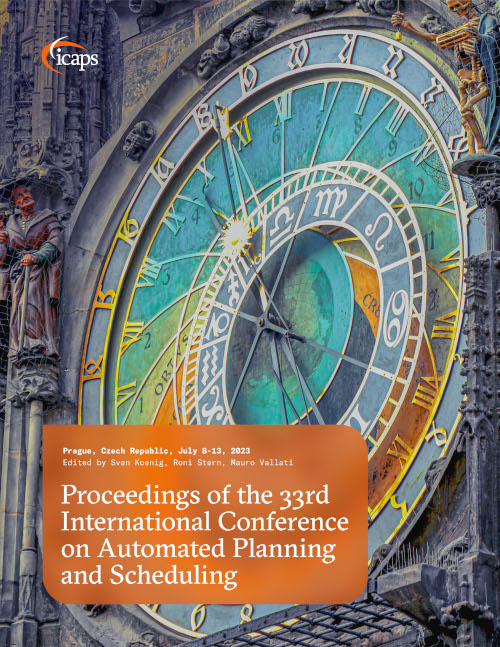Runahead A*: Speculative Parallelism for A* with Slow Expansions
DOI:
https://doi.org/10.1609/icaps.v33i1.27176Keywords:
Robot planning and scheduling, Theoretical foundations of planning and schedulingAbstract
A* suffers from limited parallelism. The maximum level of traditional parallelism in A* is the same as the degree of the search graph nodes, which is too small in many applications. As such, A* cannot fully leverage the multithreading capabilities of modern processors. In this paper, we go beyond traditional parallelism and introduce speculative parallelism for A*. We observe that A*'s node expansions exhibit predictable patterns in applications like path planning. Based on this observation, we propose Runahead A* (RA*). When a node is being expanded, RA* predicts future likely-to-be-expanded nodes, performs their corresponding computation on separate threads, and memoizes the computation results. Later when a predicted node is selected for expansion, rather than performing its computation, the memoized results are used, saving significant time in slow-expansion applications. We study five applications of A*. We show that when its prediction accuracy is high, RA* offers significant speedup over vanilla A* for slow-expansion applications. With 16 threads, RA*'s speedup for such applications ranges from 3.1x to 14.1x. We also study and provide insight into when, why, and to what extent node expansions are predictable. We provide an implementation of RA* at: https://github.com/cmu-roboarch/runahead-astar/Downloads
Published
2023-07-01
How to Cite
Bakhshalipour, M., Qadri, M., Guri, D., Ehsani, S. B., Likhachev, M., & Gibbons, P. B. (2023). Runahead A*: Speculative Parallelism for A* with Slow Expansions. Proceedings of the International Conference on Automated Planning and Scheduling, 33(1), 31-41. https://doi.org/10.1609/icaps.v33i1.27176

